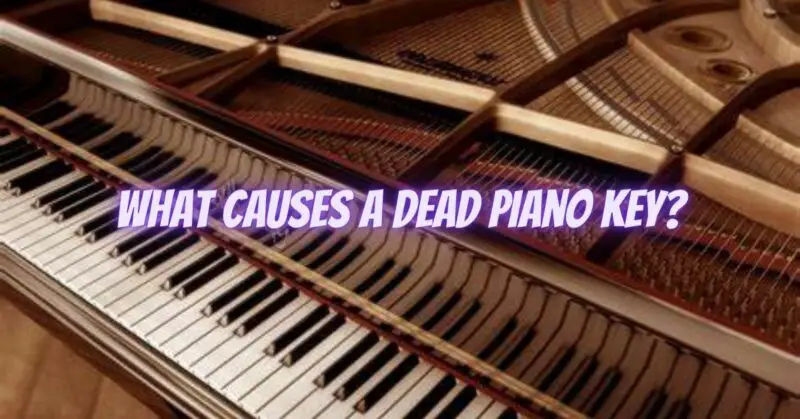Encountering a dead piano key, where a key produces no sound when played, can be frustrating for musicians. Several factors can contribute to this issue, ranging from simple fixes to more complex underlying problems. In this article, we will explore common causes of a dead piano key and provide insights into the possible reasons behind it.
- Obstruction or Debris: One of the most common causes of a dead piano key is an obstruction or debris that prevents the key from engaging the action mechanism properly. This can include foreign objects lodged between the key and the hammer, such as paper, dust, or other particles. Cleaning the affected area can often resolve this issue.
- Damaged or Broken Action Mechanism: A dead key may indicate a mechanical problem within the piano’s action mechanism. This could involve a broken or disconnected part, a worn-out component, or a misalignment. Such issues require the expertise of a qualified piano technician to diagnose and repair.
- Loose or Disconnected Key: If a key becomes loose or disconnected from the action mechanism, it may result in a dead key. This can occur due to repeated heavy playing, physical impact, or general wear and tear. Reattaching or adjusting the key may be necessary to restore its functionality.
- Damaged Hammer Felt: The felt on the piano’s hammers can wear down over time, causing them to lose their ability to strike the strings properly. If the hammer felt is significantly damaged or worn, it can result in a dead key. Reshaping or replacing the hammers may be required to rectify the issue.
- String Problems: A dead key can also be a result of issues with the corresponding string. The string may be broken, detached, or damaged, preventing it from vibrating and producing sound when the key is pressed. In such cases, replacing or repairing the string is necessary.
- Environmental Factors: Extreme changes in humidity or temperature can affect the piano’s overall condition, including the responsiveness of individual keys. Excessive moisture or dryness can cause wooden components to expand or contract, leading to dead keys. Maintaining a stable humidity level in the piano’s environment is crucial to prevent such issues.
Conclusion: A dead piano key can stem from various causes, ranging from simple obstructions or loose components to more complex mechanical or structural problems. While some issues can be resolved through basic cleaning or adjustments, others may require the expertise of a professional piano technician. Regular maintenance, proper cleaning, and monitoring of the piano’s condition can help identify and address problems early on, minimizing the occurrence of dead keys. Seeking the assistance of a qualified technician is advised when encountering persistent or complex issues to ensure the proper functioning and longevity of your piano.


